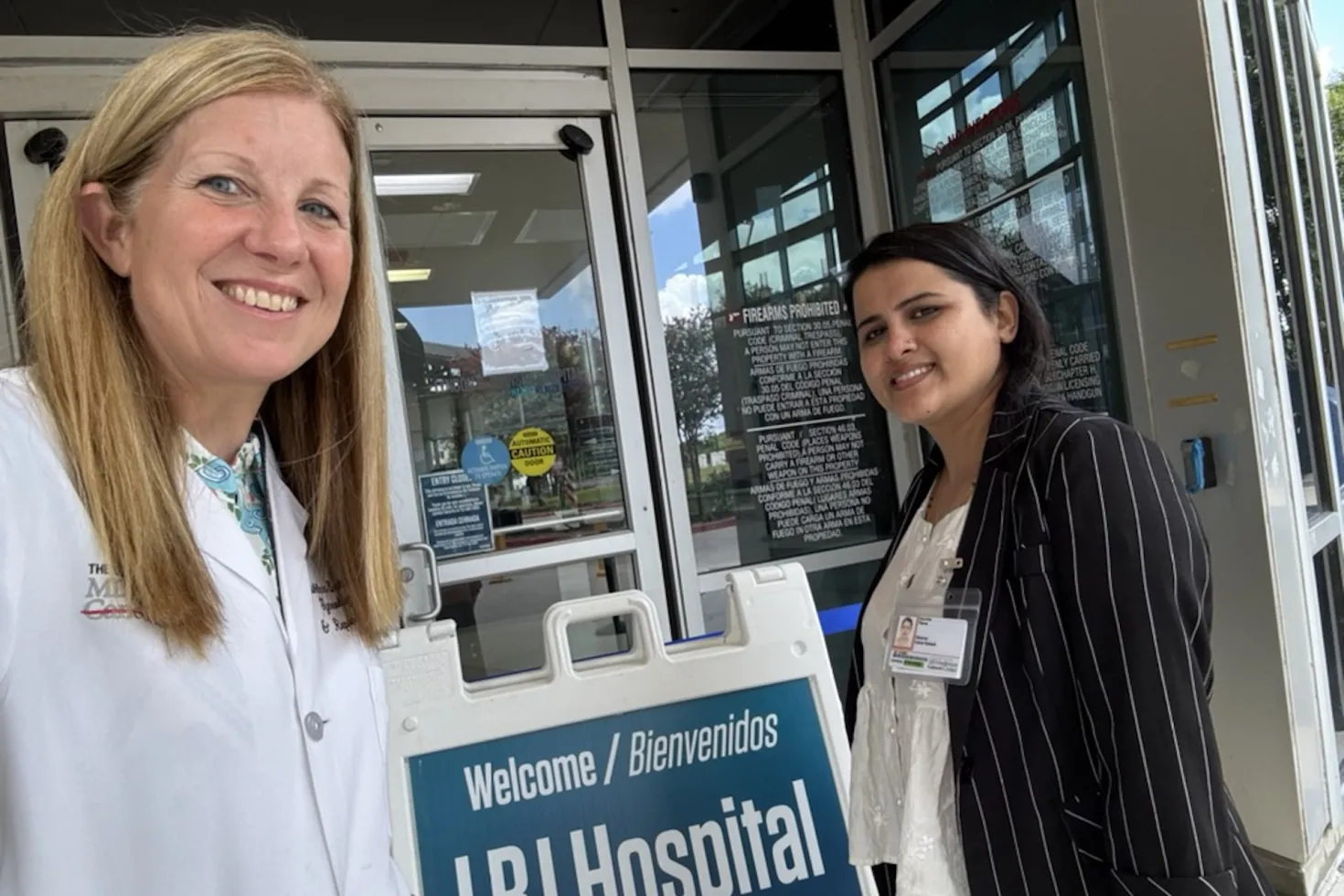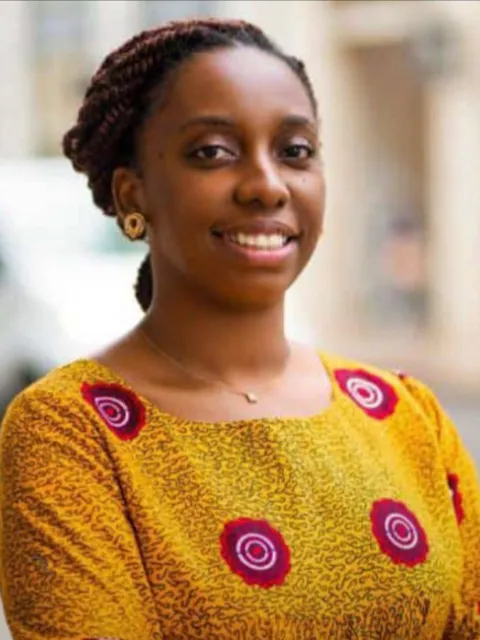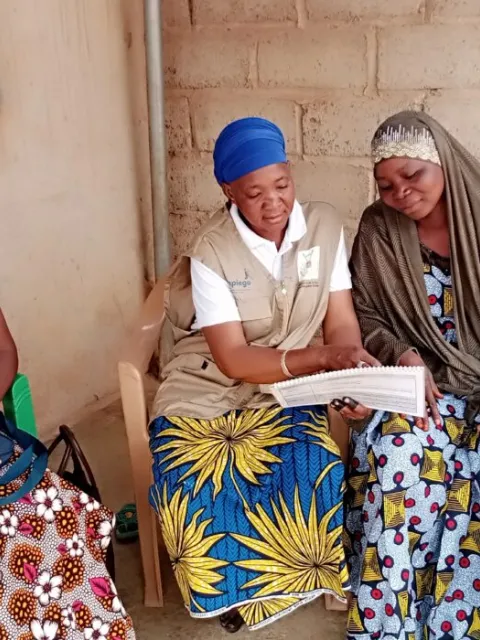Improving cancer outcomes through global collaboration
Seeking to address the late diagnosis of cancer in Nepal, notably among women, Dr Asmita Rana of B. P. Koirala Memorial Cancer Hospital in Nepal completed a one-month UICC Technical Fellowship with Dr Kathleen Schmeler at MD Anderson Cancer Center in the US, focusing on community-based screening and improved follow-up systems.

HIGHLIGHTS
- Dr Asmita Rana of B. P. Koirala Memorial Cancer Hospital in Nepal completed a UICC fellowship at MD Anderson to strengthen cancer prevention and follow-up systems.
- Her main focus was on breast and cervical cancer, which account for over 30% of cancer deaths among Nepali women.
- Community-based screening and integrated outreach models are being adapted to Nepal’s rural challenges.
- A new cancer registry system is being developed to support evidence-based planning and policy advocacy.
In Nepal, women with cancer often arrive at hospital only once their symptoms have become advanced and treatment options limited. “Preventive care and early detection are simply not part of many people’s experience of healthcare,” explains Dr Asmita Rana, who leads the Department of Cancer Prevention, Control and Research at B. P. Koirala Memorial Cancer Hospital (BPKMCH) in Bharatpur, a UICC member.
In 2023, Dr Rana was awarded a grant by UICC as part of its Breast Cancer programme for a project aimed at training and equipping primary health workers in Nepal to recognise breast symptoms, perform clinical breast examination and ensure timely referral, to improve early detection.
More recently, Dr Rana undertook a one-month UICC Technical Fellowship at MD Anderson Cancer Center in the US to explore how prevention and early detection services could be strengthened in this context. Her primary focus was on breast and cervical cancers, which together are estimated to account for over a third of all new cancer cases and more than 30% of cancer-related deaths among women in Nepal.
Even where screening services are available, uptake is low, especially in rural areas, according to Dr Rana. “Many women have to travel long distances – two to three hours or more – to reach us,” she explained. “Even when we bring screening services to their district, they often don’t come. Without symptoms, they don’t feel the need. So we have to do a lot of explaining and counselling.”
Dr Rana regularly sees the consequences of delayed diagnosis, which often means cancers are detected at a later stage and therefore harder to treat successfully. Late detection of cancer can also lead to a lower quality of life and a greater impact on families and communities.
At BPKMCH, outreach programmes are conducted in coordination with local leaders and female community health volunteers, using established networks such as mothers’ groups to mobilise participation. In these community clinics, clinical breast examinations are offered alongside visual inspection with acetic acid (VIA) for cervical cancer – an integrated strategy that increases efficiency and reach.
“Combining screening for breast and cervical cancer helps with uptake,” said Dr Rana. “It reduces the number of visits, which is important for women who are busy or live far away, and it helps us make the best use of limited resources.”
During her fellowship at MD Anderson, Dr Rana worked with Dr Kathleen Schmeler, a UICC Board member, and gynaecologic oncologist whose work focuses on improving access to cervical cancer prevention in underserved populations in the US and globally, as well as Dr Lewis Foxhall, Vice President for Health Policy and Professor in the Department of Clinical Cancer Prevention. Together they explored how multidisciplinary teams and outreach models could be adapted to different contexts. “There are similar stories everywhere,” said Dr Schmeler. “Whether it’s Houston or Nepal or Mozambique, women fall through the cracks when they can’t access follow-up care after an abnormal screening result.”
Dr Rana notably observed community-focused screening initiatives, including MD Anderson’s Project Valet, a mobile mammography programme that provides breast cancer screening in accessible, familiar settings across Houston.
“It was valuable to see how high-quality services can be delivered outside hospital walls,” she said. “What stood out was not only the clinical quality, but also the logistical systems that support follow-up and continuity of care. In Nepal, ensuring follow-up after an abnormal result remains a challenge, particularly in rural or decentralised settings.”
Dr Schmeler noted that ensuring follow-up after screening is also an issue in the US. “The biggest issue we see, and I think it’s everywhere, is follow-up,” she said. “Even here, we see people get lost in the system.”
Dr Rana is now exploring how aspects of the Project Valet model – such as appointment tracking, community partnerships, and local engagement – might be adapted to strengthen follow-up systems in Nepal.
“We tried to provide opportunities for Asmita to experience examples of how we bring prevention to where people are, especially underserved groups,” said Dr Schmeler. “Her experience also helped our team reflect on how resource constraints shape access. It reminded us that not everyone has a cancer centre down the street. There’s learning in both directions.”
Also during her fellowship, Dr Rana participated in a week-long tobacco cessation training programme at MD Anderson. “Tobacco use is widespread in Nepal, including chewing tobacco, which is linked to oral and other cancers,” she explained. “But we don’t yet have a structured tobacco cessation programme, even in tertiary hospitals.”
As nicotine patches or medications for cessation remain cost-prohibitive for many in Nepal, Dr Rana is advocating for the introduction of behavioural screening and counselling in her hospital’s outpatient department. “We can at least start by identifying people who use tobacco and offering counselling,” she said. “If that becomes routine in our outpatient department, it’s a step forward.”
She also spent time with the policy and advocacy team at MD Anderson, exploring how institutional strategies, including smoke-free employment policies and advocacy for raising the legal smoking age, can be implemented and sustained over time.
Finally, Dr Rana looked at how MD Anderson integrates data and registries into cancer planning. The experience highlighted the importance of collecting not just basic demographic information, but detailed clinical indicators such as stage, grade, and treatment results.
Since returning to Nepal, she has been working with colleagues at Tata Memorial Hospital in India, which is the coordinating centre for the country’s National Cancer Grid (a network of cancer registries, hospitals, and cancer care institutions), to implement a new registry system at BPKMCH. The goal is to generate data that can guide follow-up care and support more effective, evidence-based planning.
“Previously, we recorded only basic information,” said Dr Rana. “With better data, we can advocate more effectively with hospital leadership and policymakers. We can show where the needs are and where prevention efforts will have the greatest impact.”
“The point of the fellowship was to provide exposure to different tools,” said Dr Schmeler, “whether it’s how to run a registry, how to advocate for policy change, or how to structure community outreach. Then Fellows can adapt those that make sense for their settings.”
Last update
Friday 17 October 2025
